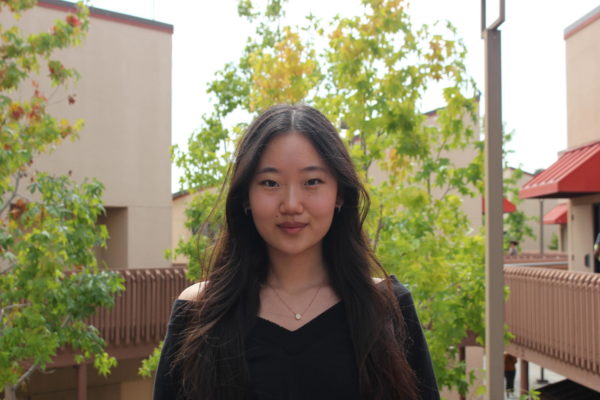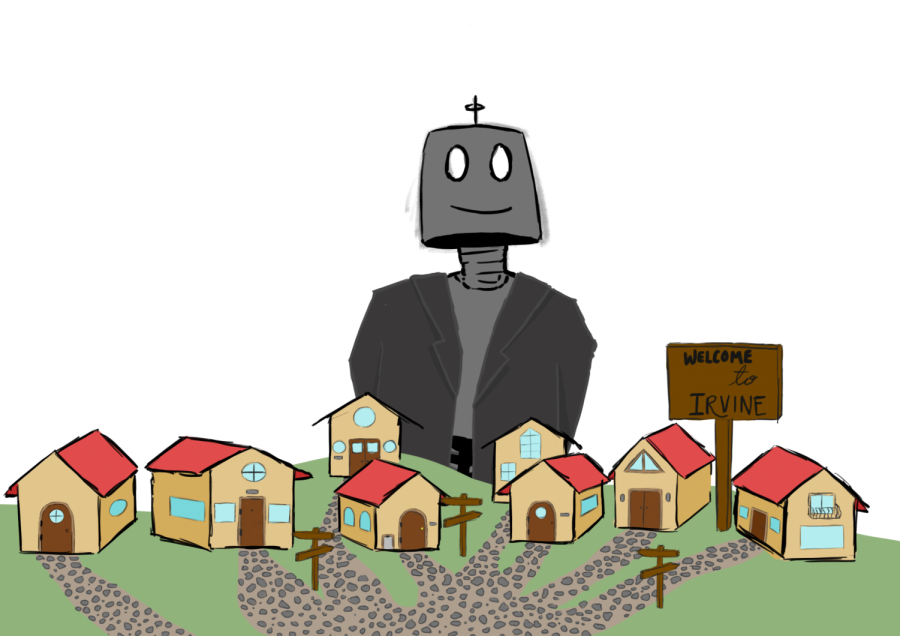Perception vs. Reality with the Irvine Company
Although the Irvine Company succeeds in achieving their goals of environmental conservation, education and expansion, they need to make room for everyone in Irvine to thrive
The Irvine Company watches over the city of Irvine, largely deciding investments and price points on housing, taking into account a promising future.
Irvine is a master planned community, a central premise which defines the role of the city’s largest business, the Irvine Company, whose goals include: building sustainable business parks, maintaining master plan communities in both Irvine and Newport Beach, investing in real estate, financing Irvine’s startup companies, preserving land and maintaining long term ownership. The master plan idea is a cycle; the Irvine Company invests in and funds communities, which benefits the city and its residents and allows the Irvine Company to profit on the more expensive property, allowing them to perpetuate this cycle.
Although the Irvine Company’s master plan is collectively successful, it may not be beneficial for everyone of every economic background in Irvine. On a national level, according to Pew Research Center, the middle class is shrinking in favor of the upper class’s economic growth. As a result of the Irvine Company’s stronghold in the city, all of the opportunities in Irvine are only fully attainable to families of a certain economic class.
For example, the more prestige a university has, the more people will want to go there, making it more exclusive. Unfortunately, this is just how American capitalism and society works. The Irvine Company’s wealth perception is the same way; they try to expand Irvine in order to increase their prestige and create a certain image for themselves. As a part of their commitment to expansion, after the 2008 economic recession, The Irvine Company built apartments in order to generate revenue. While this financially helped the Irvine Company, it also contributed to the funding of the beautiful parks, amenities, well-kept streets and housing that we enjoy in Irvine today. Irvine has select regions which require an additional property tax called the Mello Roos. It is used to fund improvements of property which beautify Irvine and increase their value. Increased property value allows the Irvine Company to invest in technology companies, apartment buildings, sustainable business parks and schools. So, the Irvine Company’s expansion funding benefits residents, but also benefits themselves. We can trust the Irvine Company to carry out the master plan in a way that will benefit everyone in Irvine in the present and future because of their focus on long term investment, but we still must advocate for greater economic equity.
Long-term investment and sustainability are central ideas of the Irvine Company’s master plan. The definition of sustainability is: human societies must live and meet their needs without compromising the ability of future generations to meet their own needs. The Irvine Company has preserved 57,000 acres of land as the Irvine Ranch, which is the largest urban open space network in the United States so that the public can use it for recreation and enjoyment. Additionally, the Irvine Company has built sustainable business complexes and are ranked No. 1 nationwide by the Environmental Protection Agency because of their energy efficient office buildings. They also built the world’s first hybrid electric buildings. The Irvine Company’s sustainable construction investments show long-term commitment to its residents and local businesses, but Irvine has not yet reached the point of inclusive capitalism, which really is the ultimate oxymoron. American capitalism has excluded people for centuries because of their race or economic status and it is not a moral system, but where can morality even lie in our modern economy? The best we can do to ensure morality in the Irvine Company’s capitalist endeavors is make sure that the Irvine Company’s sustainability goals make room for more families and businesses in the future as well as in the present.
Additionally, Irvine’s high home prices help the Irvine Company in their goals for long-term development, but at the cost of those who currently want to settle in Irvine. According to Zillow, the current average home price in Irvine is $953,079. Also, between March 2017 and April 2020, Irvine’s average home price stayed relatively the same. But between June 2020 and February 2021, the average home price increased from $908,000 to $953,000, which is the largest increase since 2017. Irvine is a hospitable place for families to thrive and the Irvine Company feeds that perception, but the reality is that not everyone can afford it. Irvine Unified School District (IUSD) is an attraction for families moving to Irvine and the Irvine Company has a 20-year, $45 million funding plan for IUSD. Part of the master plan is funding education in Irvine because it ensures students’ futures and is an incentive to pay more for a house. It is no coincidence that the top two employers in Irvine are the University of California Irvine (UCI) and IUSD. According to US News and World Report, Woodbridge High is ranked 95th out of 2,605 high schools in California, with University and Northwood ranked 57th and 80th, respectively. Although having a reputation for excellent schools raises the property value, educational funding is important because it gives every child in Irvine a chance, whereas high housing prices limit residents.
On the bright side, Irvine has the most low income apartments in Orange County with 4,569 units currently. While this does not solve the exclusivity issue, it does show commitment to making Irvine more inclusive, more sustainable and more diverse.
Overall, the Irvine Company is usually successful and can be trusted to achieve their goals. According to the National League of Cities, some ways we can help make Irvine more economically equitable is that we can make sure new development projects will have opportunities for training and employment as well as require Community Benefit Agreements that establish training commitments, hiring commitments and wage standards. The NLC gives these suggestions for large cities, but if Irvine implements them, it would greatly help us to grow in a more inclusive way. So go raise awareness, have conversations about Irvine’s wealth perception, advocate for more affordable housing units and let’s find a way, collectively, to maintain the master plan while also opening all of Irvine’s doors to all those who knock on them.
Your donation will support the student journalists of Woodbridge High School. Your contribution will allow us to purchase equipment and cover our annual website hosting costs.

Hi Warriors! This is my third year as a part of Golden Arrow and I am so excited to be an Opinion Editor and writer this year. I can't wait to write meaningful...

Hey Warriors! My name is Ruby Yang and I am so excited to serve as a Co-Editor-in-Chief. This is my fourth year in Golden Arrow and my second year as Co-EIC....









